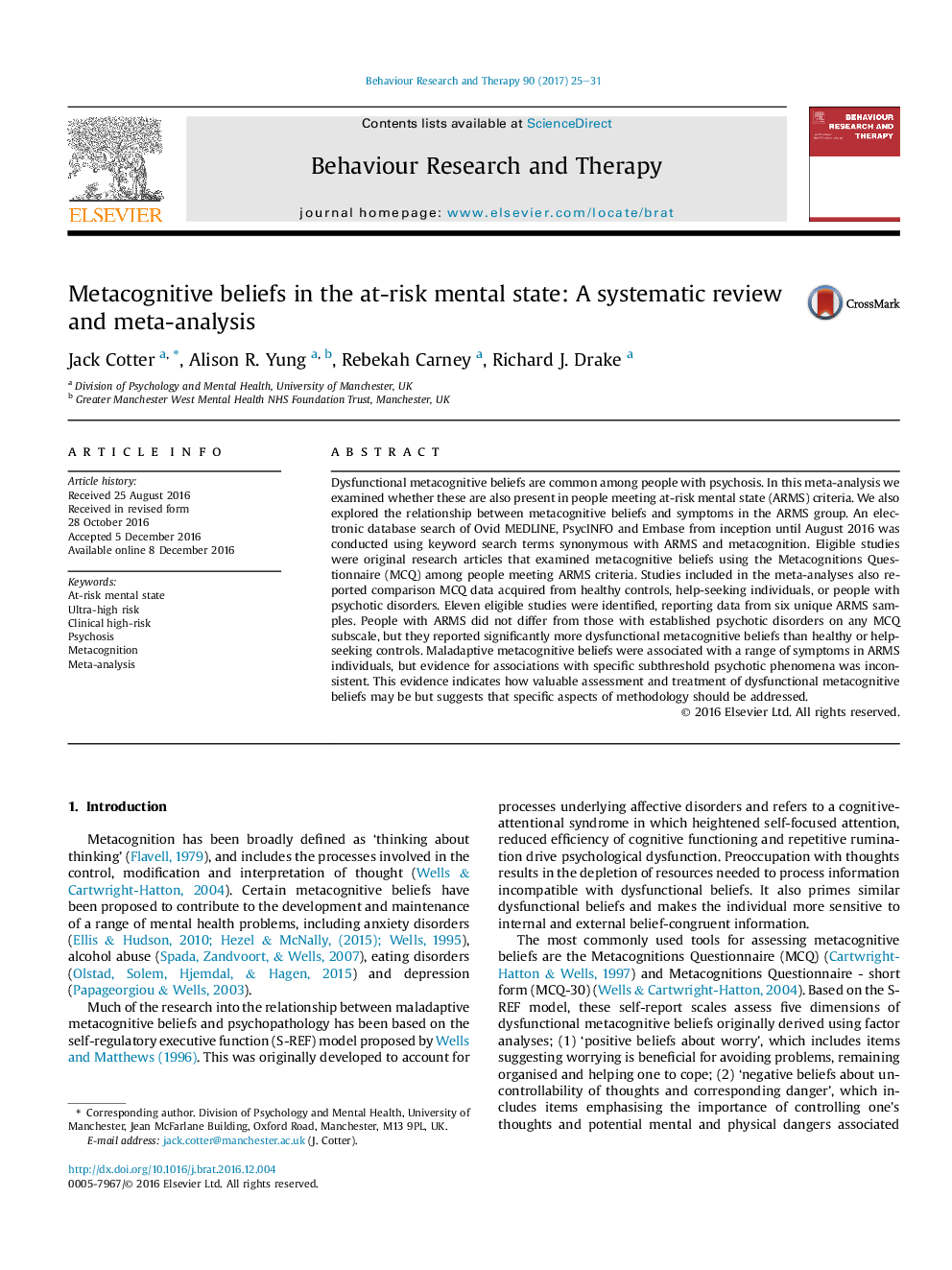| کد مقاله | کد نشریه | سال انتشار | مقاله انگلیسی | نسخه تمام متن |
|---|---|---|---|---|
| 5038267 | 1472759 | 2017 | 7 صفحه PDF | دانلود رایگان |
- Dysfunctional metacognitive beliefs are common in young people meeting ARMS criteria.
- Though associations with specific subthreshold psychotic phenomena were inconsistent.
- Metacognitive beliefs were more strongly associated with mood and anxiety symptoms.
- Maladaptive metacognitive beliefs are potential targets for therapeutic intervention.
Dysfunctional metacognitive beliefs are common among people with psychosis. In this meta-analysis we examined whether these are also present in people meeting at-risk mental state (ARMS) criteria. We also explored the relationship between metacognitive beliefs and symptoms in the ARMS group. An electronic database search of Ovid MEDLINE, PsycINFO and Embase from inception until August 2016 was conducted using keyword search terms synonymous with ARMS and metacognition. Eligible studies were original research articles that examined metacognitive beliefs using the Metacognitions Questionnaire (MCQ) among people meeting ARMS criteria. Studies included in the meta-analyses also reported comparison MCQ data acquired from healthy controls, help-seeking individuals, or people with psychotic disorders. Eleven eligible studies were identified, reporting data from six unique ARMS samples. People with ARMS did not differ from those with established psychotic disorders on any MCQ subscale, but they reported significantly more dysfunctional metacognitive beliefs than healthy or help-seeking controls. Maladaptive metacognitive beliefs were associated with a range of symptoms in ARMS individuals, but evidence for associations with specific subthreshold psychotic phenomena was inconsistent. This evidence indicates how valuable assessment and treatment of dysfunctional metacognitive beliefs may be but suggests that specific aspects of methodology should be addressed.
Journal: Behaviour Research and Therapy - Volume 90, March 2017, Pages 25-31
